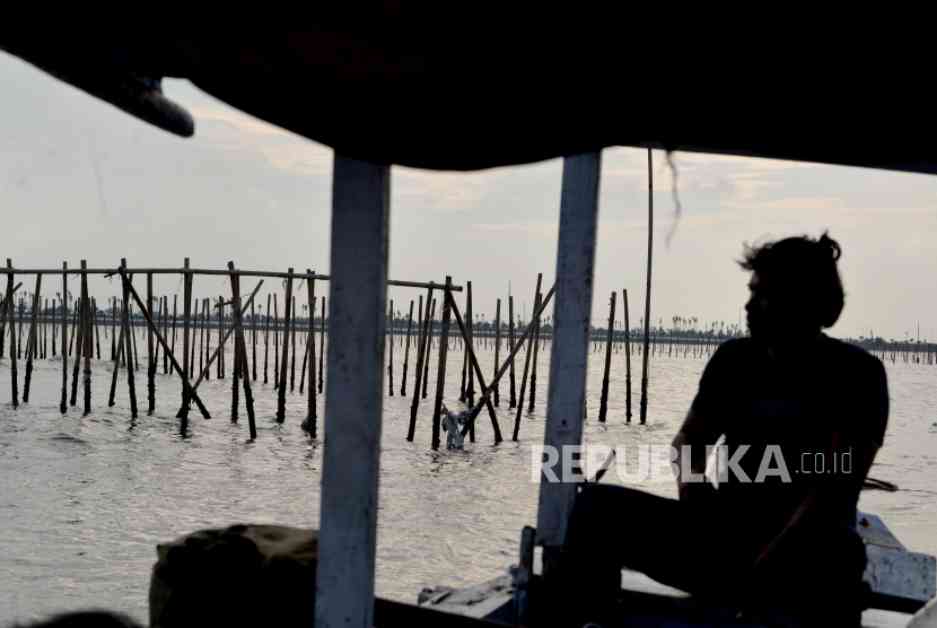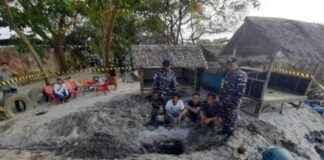Illegal Sea Barriers Disturb Thousands of Fishermen, MUI Warns Offenders of Jail Time and Fines
In a recent development that has sent shockwaves through the fishing community, a 30-kilometer-long barrier made of bamboo has been constructed along the coast of Tangerang, Banten, causing chaos for thousands of fishermen and shellfish cultivators. The Deputy Secretary General of the Indonesian Ulema Council (MUI) for Legal and Human Rights, KH Ikhsan Abdullah, has condemned this illegal act, highlighting the severe consequences offenders could face under the law.
**Unlawful Construction and Consequences**
According to Kiai Ikhsan, individuals involved in building such sea barriers can be sentenced to up to three years in prison and fined up to Rp 500 million under the law. He emphasized that any national strategic policies, such as installing sea barriers, must adhere to government-allocated spatial planning regulations set by the Ministry of Maritime Affairs and Fisheries (KKP) before execution.
Kiai Ikhsan revealed that this unauthorized sea barrier has disrupted at least 3,888 fishermen and 500 shellfish breeders across six districts in Tangerang Regency. Not only has it hindered fishermen’s access to the sea, but it has also driven up their operational costs significantly.
**Impacts on Local Communities**
The mysterious sea barrier has encroached upon the coastal territories of 16 villages, affecting over 3,000 fishermen and approximately 500 shellfish breeders in the area. Despite the lack of permits from local authorities for its construction, the sea barrier continues to expand unchecked, posing a growing threat to the livelihoods of the coastal communities.
**Violation of Rights and Legal Ramifications**
In addition to violating the provisions of existing laws and regulations, the act of sea barricading undermines the rights and livelihoods of fishermen and coastal residents, as highlighted by Kiai Ikhsan. He stressed that such unilateral actions disrupt the balance of justice and go against the spirit of fairness for those dependent on the sea for their sustenance.
As we navigate the complex legal and environmental implications of this issue, it is crucial to uphold the principles of justice and sustainable resource management outlined in the Indonesian Constitution. The protection of our natural resources and the well-being of our coastal communities must remain at the forefront of our efforts to address this pressing concern.
When reflecting on these events, it is essential to consider the far-reaching impacts of illegal activities on vulnerable communities that rely on the sea for their livelihoods. Let us strive to protect our environment and support those affected by such disruptions as we work towards a more sustainable and equitable future for all.














